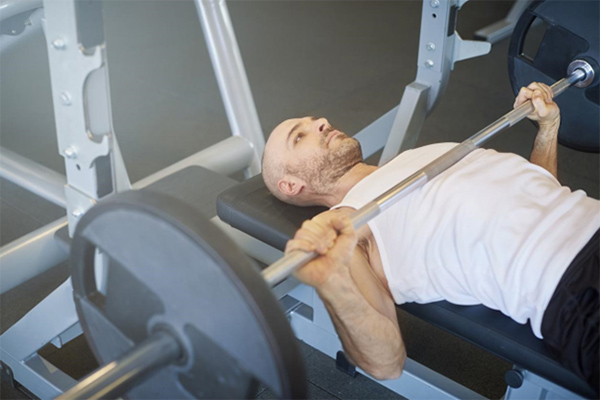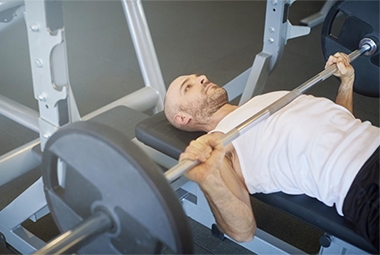
A solid bench press has long been a benchmark of upper body strength—but when shoulder pain starts creeping in, it’s more than just a minor annoyance. For many men, this pain signals deeper joint stress or injury. In recognition of Men’s Health Month, let’s explore the link between bench pressing and shoulder health—and what you can do about it.
Why the Bench Press Strains the Shoulder
The bench press targets the chest, but your shoulders absorb a surprising amount of force with each rep. The rotator cuff muscles and the labrum help stabilize the shoulder joint during pressing motions. Poor form, heavy loading, or lack of mobility can cause microtrauma over time—leading to inflammation, impingement, or even tearing of the soft tissues.
Common Shoulder Injuries in Men Who Lift
Men who frequently bench press may experience:
- Rotator cuff tendinitis or tears: Caused by repeated strain or improper form that overloads the small stabilizing muscles of the shoulder.
- Shoulder impingement syndrome: Occurs when poor technique or tight muscles compress shoulder tendons during the pressing motion.
- Labral tears (SLAP lesions): Can result from heavy or unstable lifting that places excess stress on the shoulder joint's cartilage ring.
- AC joint inflammation or arthritis: Develops from repetitive pressure and wear at the top of the shoulder, especially with wide grip bench pressing.
If you notice pain during pressing, limited range of motion, or weakness in your shoulder, these could be early warning signs that should not be ignored.
Smart Training: Reduce Risk, Improve Performance
Staying injury-free isn’t about skipping chest day—it’s about training smarter. Protect your shoulders by:
- Maintaining proper form: Elbows slightly tucked, bar lowered to mid-chest
- Warming up with mobility and activation exercises
- Balancing push days with pull exercises like rows and pull-ups
- Avoiding excessive volume or insufficient recovery time
These simple changes can help preserve shoulder function and enhance long-term performance.
Don’t let shoulder pain derail your training goals. If shoulder pain lingers beyond a few days or worsens with activity, it’s time for a professional evaluation.
AUTHOR: Brian W. Hill, M.D. is a board-certified shoulder surgeon at Palm Beach Orthopedic Institute. He is an expert in advanced reconstructive and arthroscopic techniques, and serves as an assistant team physician for the Washington Nationals and their affiliates. Dr. Hill treats shoulder injuries and arthritis with a focus on patient-centered care and clear communication.






